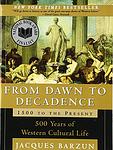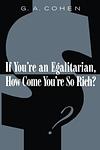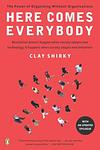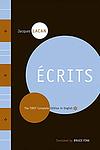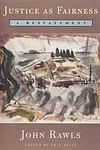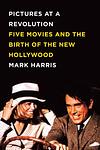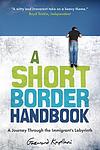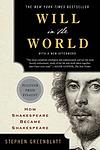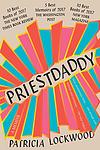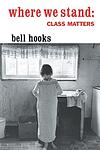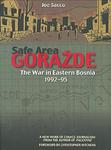The Greatest "Nonfiction" Books Since 2000
Click to learn how this list is calculated.
This list represents a comprehensive and trusted collection of the greatest books. Developed through a specialized algorithm, it brings together 300 'best of' book lists to form a definitive guide to the world's most acclaimed books. For those interested in how these books are chosen, additional details can be found on the rankings page.
Genres
Countries
Date Range
Reading Statistics
Click the button below to see how many of these books you've read!
Download
If you're interested in downloading this list as a CSV file for use in a spreadsheet application, you can easily do so by clicking the button below. Please note that to ensure a manageable file size and faster download, the CSV will include details for only the first 500 books.
Download-
126. From Dawn To Decadence : 1500 To The Present by Jacques Barzun
This book offers a sweeping overview of Western cultural life from the Renaissance to the early 21st century. It delves into the pivotal events, ideas, and personalities that have shaped the modern world, exploring how cultural movements and the evolution of thought have influenced society's development. The narrative weaves through various disciplines, including art, music, politics, and science, to provide a comprehensive understanding of the forces that have led to both the achievements and challenges of Western civilization. Through a rich tapestry of historical analysis, the work invites readers to reflect on the complexity and dynamism of the human experience over the last five centuries.
The 6667th Greatest Book of All Time -
128. Human Nature After Darwin by Janet Radcliffe Richards
"Human Nature After Darwin" is a philosophical examination of the implications of Darwinian theory on our understanding of human nature and ethics. The book critically explores how evolutionary biology impacts our views on morality, politics, and philosophy. It challenges the assumption that biological explanations can justify social policies or moral values, arguing instead for a clear distinction between scientific facts and ethical norms. The author engages with various debates on human nature, using Darwinian insights to question traditional views and to propose a more nuanced perspective on human behavior and ethical reasoning.
-
129. The Mind Doesn't Work That Way by Jerry A. Fodor
"The Mind Doesn't Work That Way" is a critical examination of the computational theory of mind, particularly as it relates to the field of cognitive science. The book challenges the widespread assumption that the mind functions like a computer, arguing instead that the modular and domain-specific nature of mental processes cannot be fully explained by existing computational models. The author critiques the scope and limitations of artificial intelligence and cognitive science in understanding human thought, emphasizing the complexity and richness of the human mind that these models fail to account for.
-
130. If You're An Egalitarian, How Come You're So Rich? by G. A. Cohen
This book delves into the apparent contradiction between advocating for egalitarian principles and possessing personal wealth. The author, a prominent political philosopher, uses a blend of rigorous argument, personal reflection, and analytical philosophy to explore whether it is hypocritical for a wealthy person to support redistributive policies. The text challenges readers to consider the moral implications of their own economic status and beliefs, and examines broader issues of justice, equality, and personal responsibility within a capitalist society. Through engaging philosophical inquiry, the book prompts a deeper understanding of the practical and ethical tensions that accompany discussions of wealth and equality.
The 6674th Greatest Book of All Time -
131. Here Comes Everybody by Clay Shirky
The book explores the profound impact of the internet on modern society, particularly focusing on how social tools such as social media enable individuals to collaborate, organize, and communicate more effectively than ever before. It delves into various case studies and examples to illustrate how these digital tools are transforming traditional notions of communication and group dynamics, emphasizing the shift from institutional to more decentralized forms of cooperation. The author argues that this technological evolution is reshaping the way people create content, share information, and even initiate social movements, ultimately altering the landscape of power and governance in the digital age.
The 6690th Greatest Book of All Time -
132. Écrits: The First Complete Edition in English by Jacques Lacan
This book is a comprehensive collection of essays by a renowned psychoanalyst, offering readers an in-depth understanding of his theories on human psychology. The author delves into complex topics such as the unconscious, the mirror stage, and the concept of the Other, while also exploring the intersection of psychoanalysis with philosophy, linguistics, and anthropology. The book challenges conventional understanding of subjectivity and identity, making it a seminal work in the field of psychoanalysis.
The 6702nd Greatest Book of All Time -
133. The Return by Hisham Matar
"The Return" is a poignant memoir detailing a man's search for his father, who disappeared in Libya's political prison system. The narrative offers a deeply personal exploration of loss, memory, and homecoming as the protagonist returns to his native country after years of living in exile. The book also provides a profound insight into Libya's turbulent history, its oppressive regime, and the devastating impact of politics on individual lives.
The 6706th Greatest Book of All Time -
134. The Sibley Guide To Bird Life & Behavior by David Allen Sibley, David Sibley
This comprehensive guide offers bird enthusiasts an in-depth look at the behavior, biology, and life cycles of North American birds. It combines detailed illustrations with informative text to cover a wide range of topics, including the intricacies of avian social structures, communication, migration, feeding habits, and breeding. The book serves as an invaluable resource for both novice and experienced birdwatchers, providing a deeper understanding of the factors that influence bird behavior and the ecological roles they play in their habitats.
The 6729th Greatest Book of All Time -
135. Justice As Fairness by John Rawls
The book presents a theory of justice that emphasizes a fair system of cooperation over time, from one generation to the next. The author argues that the principles of justice are those that free and rational persons would accept in an initial position of equality, as defined by the "original position" and the "veil of ignorance." This theoretical approach ensures that no one is advantaged or disadvantaged by natural fortune or social circumstances in the selection of principles. The work elaborates on two fundamental principles of justice: the first guarantees equal basic liberties, while the second arranges social and economic inequalities so that they are both reasonably expected to be to everyone's advantage and attached to positions open to all under conditions of fair equality of opportunity.
The 6730th Greatest Book of All Time -
136. The Elements Of Statistical Learning by Robert Tibshirani, Jerome Friedman, Trevor Hastie
"The Elements of Statistical Learning" is a comprehensive guide to the concepts and techniques of statistical learning and machine learning. It covers a wide array of methods and algorithms that enable computers to 'learn' from and make predictions based on data. The book provides detailed explanations of topics such as linear regression, classification, resampling methods, shrinkage approaches, tree-based methods, support vector machines, clustering, and neural networks. Each method is explained in detail with an emphasis on the underlying theory and practical applications, making it accessible to readers with various levels of expertise in statistics and machine learning. This text is considered essential for those who wish to understand and apply statistical learning techniques to complex data analysis problems.
-
137. Pictures At A Revolution by Mark Harris
"Pictures at a Revolution" is a detailed exploration of the five films nominated for Best Picture at the 1967 Academy Awards, which marked a turning point in Hollywood. The book examines how these films - two old Hollywood movies, two upstart productions, and a French New Wave import - reflected the cultural and political shifts of the time. Through behind-the-scenes stories, the book provides insight into the changing landscape of the film industry and its impact on American society.
The 6732nd Greatest Book of All Time -
138. de Kooning by Mark Stevens, Annalyn Swan
This book offers an in-depth study into the life and works of a renowned Dutch-American Abstract Expressionist artist. The authors delve into his troubled childhood in Rotterdam, his immigration to America, and his struggles with alcoholism and Alzheimer's in his later years. They also explore his artistic journey, from his early work as a house painter to his rise as a leading figure in the New York art scene, detailing his unique style that blended abstraction and figuration. The book also highlights his tumultuous relationships, particularly with women, and how these influenced his art.
The 6825th Greatest Book of All Time -
139. Washington's Crossing by David Hackett Fischer
This historical work delves into the pivotal event of George Washington crossing the Delaware River during the American Revolutionary War. It provides an in-depth analysis of the strategic decision-making, the hardships faced by the troops in the brutal winter, and the subsequent battles of Trenton and Princeton. The book also explores the impact of these events on the morale of the American forces and the ultimate outcome of the war, painting a vivid picture of this crucial period in American history.
The 6825th Greatest Book of All Time -
140. A Short Border Handbook by Gazmend Kapllani
"A Short Border Handbook" is a poignant and thought-provoking memoir that follows the journey of a young Albanian man who leaves his homeland to seek a better life in Greece. Through a series of vivid and often humorous anecdotes, the author explores themes of identity, belonging, and the complexities of borders, both physical and metaphorical. With a mix of personal experiences and historical context, this book offers a unique perspective on the challenges and triumphs of immigration, ultimately revealing the universal human desire for freedom and acceptance.
The 6838th Greatest Book of All Time -
141. Tell Me How It Ends: An Essay in 40 Questions by Valeria Luiselli
This book is a powerful exploration of the critical issue of child immigration, focusing on the experiences of Central American children who arrive in the United States without their parents. The narrative is structured around 40 questions that the author, as a court interpreter, must ask the children to help determine their fate. The book provides a deeply personal and moving account of the human stories behind the ongoing debate over immigration and asylum laws.
The 6845th Greatest Book of All Time -
142. Will In The World: How Shakespeare Became Shakespeare by Stephen Greenblatt
"Will In The World" is a biography of Shakespeare that explores how he became one of the greatest writers in history. Stephen Greenblatt delves into the political and cultural influences of Elizabethan England, as well as the personal experiences and relationships that shaped Shakespeare's life and work. Through a combination of historical research and literary analysis, Greenblatt paints a vivid portrait of Shakespeare's world and the man who transformed it with his words.
The 6846th Greatest Book of All Time -
143. Priestdaddy: A Memoir by Patricia Lockwood
This memoir follows the unique life of a woman who grew up in an unusual religious family. After a financial crisis forces her and her husband to move back in with her parents, she reflects on her upbringing in a household where her father, a Catholic priest, held an eccentric and often contradictory sway over the family. The book explores themes of faith, family dynamics, and the struggle to find one's identity amidst the chaos of an unconventional childhood.
The 6850th Greatest Book of All Time -
144. Evil In Modern Thought by Susan Neiman
This book offers a comprehensive exploration of the concept of evil from the Enlightenment to the present, examining how the question of evil has been a central concern for modern philosophers. The author traces the evolution of the ideas surrounding evil, from attempts to understand its origins and nature, to its profound impact on philosophical thought and ethical considerations. Through a detailed analysis of major philosophical works and thinkers, the text delves into how the problem of evil has shaped modern philosophy's approach to morality, religion, and the meaning of life, arguing that the struggle with the concept of evil is essential to understanding the progress and challenges of contemporary thought.
The 6862nd Greatest Book of All Time -
145. The Problem Of The Soul by Owen J. Flanagan
"The Problem of the Soul" delves into the complex intersection of philosophy, psychology, and neuroscience in exploring the concept of the self and consciousness. The book critically examines traditional views of the soul and self, arguing against the notion of an immaterial soul as traditionally conceived in many religious and philosophical doctrines. Instead, it advocates for a more scientifically grounded understanding of human nature, emphasizing that consciousness and the self can be explained through the workings of the physical brain. The author integrates insights from various disciplines to challenge deeply held beliefs and to propose a more coherent and empirically supported view of human identity and morality.
-
146. Our Posthuman Future by Francis Fukuyama
"Our Posthuman Future" explores the potential social, political, and ethical implications of biotechnological advancements that could alter human nature itself. The book delves into the consequences of such technologies that may enable us to manipulate human traits and capabilities, raising critical questions about the essence of being human. It discusses the regulatory frameworks needed to govern these technologies, warning that without proper controls, we might face a future where genetic engineering and artificial enhancements create unprecedented inequalities and challenges to our fundamental human rights and concepts of democracy.
-
147. Straw Dogs by John Gray
"Straw Dogs" is a philosophical critique of modern humanism and the belief in human progress. The book challenges the commonly held views that humans are fundamentally different from other animals and that they can shape the world according to their will. Drawing on an eclectic mix of Western philosophy, Eastern mysticism, and scientific knowledge, the author argues that human life is no more significant than that of straw dogs, which were used as ritual objects in ancient Chinese sacrifices and then discarded. The book presents a radical perspective that calls into question many of the foundational assumptions of Western thought, ultimately suggesting that humans should embrace a more humble, realistic understanding of their place in the world.
-
148. Human Cloning And Human Dignity by President's Council on Bioethics (U.S.), Leon Kass
This book provides a comprehensive examination of the ethical and philosophical implications of human cloning. It explores the debate from multiple perspectives, including the potential benefits and harms of cloning technologies. The text delves into the moral concerns associated with human dignity, individuality, and the possible societal impacts of cloning humans. Through thorough analysis and discussion, the book seeks to inform public policy and contribute to the broader conversation on bioethical standards and human rights in the context of advancing biotechnological capabilities.
-
149. Where We Stand by bell hooks
In "Where We Stand," the author delves into the complex interplay of class and race in America, examining how socioeconomic status impacts individual identity and shapes the dynamics of power and privilege within society. Through personal anecdotes and critical analysis, the book challenges readers to confront the often-unspoken hierarchies that influence our lives and to consider the ways in which classism intersects with racism and sexism. The author advocates for a greater awareness of class issues and calls for solidarity across different social strata to create a more equitable and just society.
The 6896th Greatest Book of All Time -
150. Safe Area: Gorazde by Joe Sacco
"Safe Area: Gorazde" is a graphic novel that provides a harrowing and deeply personal account of the Bosnian War, focusing on the experiences of the inhabitants of Goražde, a Bosnian enclave that was declared a UN "safe area" during the conflict. Through a blend of journalism and art, the book portrays the daily struggles, horrors, and resilience of the people who lived through the siege, as well as the complexities of the war. The author's immersive storytelling and detailed illustrations bring to light the human cost of war, the failures of international intervention, and the enduring spirit of those who survived amidst the chaos and violence of the early 1990s.
The 6896th Greatest Book of All Time
Reading Statistics
Click the button below to see how many of these books you've read!
Download
If you're interested in downloading this list as a CSV file for use in a spreadsheet application, you can easily do so by clicking the button below. Please note that to ensure a manageable file size and faster download, the CSV will include details for only the first 500 books.
Download